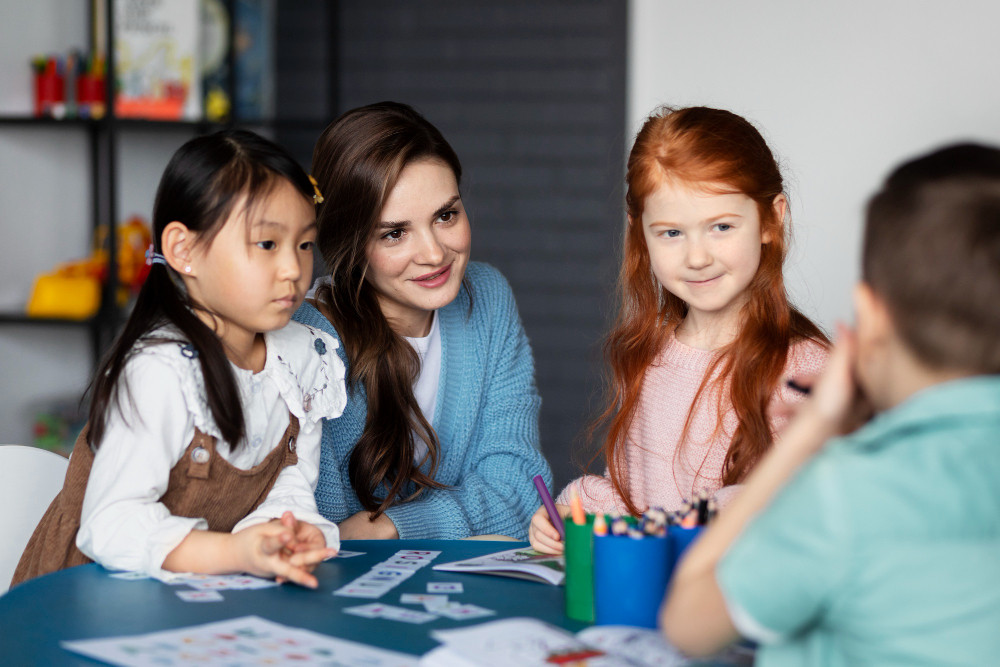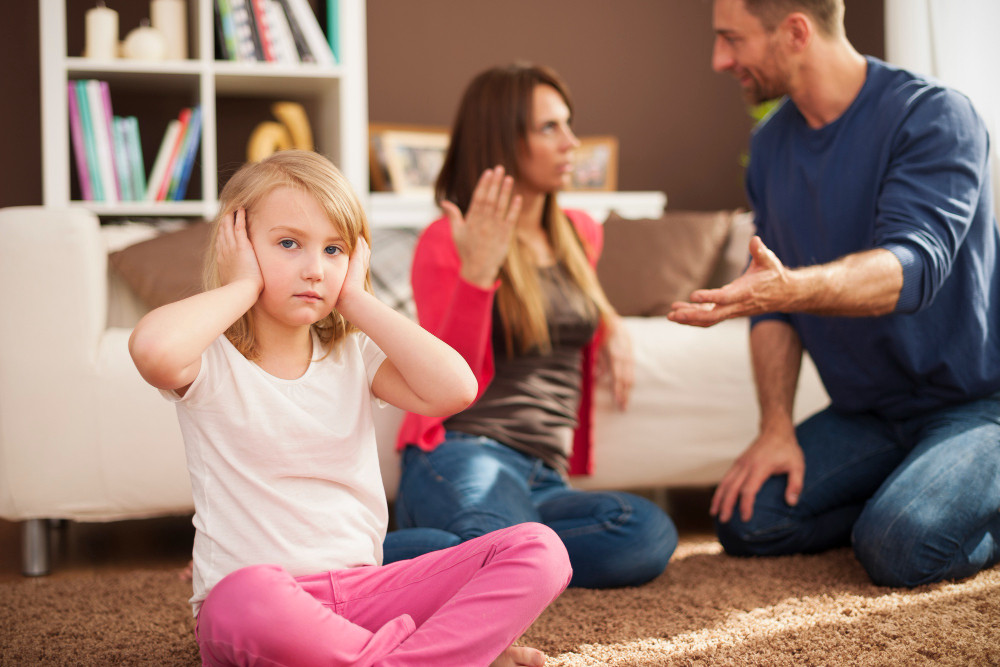
Are You Unknowingly Hurting Your Child? Signs of Bad Parenting You Must Avoid
Introduction: Are You Unknowingly Hurting Your Child? Signs of Bad Parenting You Must Avoid
No parent wants to hurt their child, but sometimes, without realizing it, we may be doing things that affect them negatively. Parenting is not easy, and there’s no perfect guidebook for it. However, certain behaviors—like constantly criticizing, showing favoritism, or being too controlling—can harm a child’s confidence, emotional well-being, and even their future success.
Many parents believe they are doing what’s best for their child, but small mistakes can have a lasting impact. For example, have you ever compared your child to others, thinking it would motivate them? Or dismissed their feelings, assuming they were overreacting? These actions might seem harmless at the moment, but they can lead to self-doubt, anxiety, and even a strained relationship between you and your child.
The good news is that parenting is a journey, and every step toward improvement makes a difference. In this article, we’ll go through the common signs of bad parenting, how they affect children, and, most importantly, how to fix them. Recognizing and changing these habits can help build a stronger, healthier, and more loving bond with your child. Let’s dive in and learn how to become better parents for a happier future!
1. What is Bad Parenting?
Bad parenting doesn’t mean you are a bad person or that you don’t love your child. It simply means certain behaviors or habits—often unintentional—are negatively affecting your child’s emotional, mental, or even physical well-being.
Bad parenting isn’t just about being abusive or neglectful. It can be as simple as not listening to your child, constantly criticizing them, controlling their every move, or comparing them to others. Sometimes, parents believe they are helping, but their actions might be doing more harm than good.
For example, a parent who always corrects their child’s mistakes without acknowledging their efforts might think they are pushing them toward success. But in reality, the child may feel like they are never good enough. Similarly, a parent who never sets rules or boundaries might believe they are giving their child freedom, but in the long run, it can lead to discipline issues and a lack of responsibility.
Bad parenting doesn’t come from a lack of love—it often comes from a lack of awareness. The key is recognizing these behaviors and making positive changes. Every parent makes mistakes, but what matters most is the willingness to learn and improve for the child’s well-being.
2. Signs You Might Be a Bad Parent Without Realizing It
Most parents don’t wake up thinking, How can I be a bad parent today? In fact, many harmful parenting behaviors happen without parents even realizing it. The problem is that small mistakes, when repeated over time, can have a deep impact on a child’s confidence, emotions, and behavior. Here are some signs that you might be unknowingly hurting your child:
Showing Favoritism Among Siblings
If one child feels like they are less loved or supported than their sibling, it can lead to deep emotional scars. Even small actions, like praising one child more, giving them better gifts, or spending more time with them, can create feelings of rejection in the other. You may not mean to play favorites, but children notice these things more than you think.
Constant Criticism and Negative Reinforcement
Correcting mistakes is part of parenting, but if all your child hears is what they did wrong, they may start believing they are a failure. Saying things like “Why can’t you be smarter like your cousin?” or “You always mess things up” can destroy their self-confidence. Instead of only pointing out mistakes, balance it with encouragement and appreciation for their efforts.
Being Overcontrolling and Not Letting Your Child Make Decisions
It’s natural to want to protect your child, but controlling every aspect of their life—what they wear, who they talk to, what hobbies they pursue—can make them feel powerless. Over time, this can lead to fear of making decisions, lack of independence, and even resentment toward you. Let your child have a say in their own life while guiding them with wisdom.
Ignoring Your Child’s Feelings
If your child comes to you upset about something and you respond with “That’s nothing to be sad about” or “Stop crying, it’s not a big deal”, they may stop sharing their feelings with you. When children feel like their emotions are not valued, they learn to bottle up their problems, which can lead to anxiety and low self-esteem.
Comparing Your Child to Others
Saying things like “Look at how well your friend studies; why can’t you be like that?” might seem like motivation, but it often has the opposite effect. Instead of inspiring them, it makes them feel like they are never good enough. Every child has their own strengths, and comparisons only damage their self-worth.
Not Setting Boundaries or Rules
Children need structure to feel safe and learn responsibility. If there are no clear rules about bedtime, homework, screen time, or behavior, they may struggle with discipline later in life. On the other hand, setting overly strict rules without any flexibility can make them feel trapped. The key is to find a healthy balance.
Being Emotionally Unavailable
You may provide your child with food, clothes, and education, but are you emotionally present? If you’re always too busy to listen, rarely show affection, or don’t engage in meaningful conversations, your child may feel emotionally disconnected from you. A strong emotional bond is what makes children feel loved and secure.
Using Fear Instead of Understanding
If your child only obeys you because they’re afraid of being yelled at or punished, they may not truly learn right from wrong. Instead of just saying “Do this because I said so”, try explaining why something is important. When children understand the reasons behind rules, they develop stronger values.
What Can You Do?
The first step to being a better parent is recognizing these behaviors. No parent is perfect, and mistakes happen, but being aware of these signs allows you to make changes. Parenting is about learning and growing, just like childhood is. Small positive changes in how you talk, listen, and support your child can make a huge difference in their happiness and confidence.
3. Psychological and Emotional Impact of Bad Parenting
The way children are raised shapes their entire life—how they see themselves, how they handle emotions, and even how they build relationships. When parenting goes wrong, the damage isn’t just temporary; it can stay with a child well into adulthood. Many parents don’t realize how their words, actions, or lack of support can deeply affect their child’s emotional and mental health.
Here’s how bad parenting can harm a child’s development:
Low Self-Esteem and Self-Doubt
When a child constantly hears criticism, comparisons, or feels like they are never good enough, they start believing it. If a parent always says things like “You can’t do anything right” or “Why are you so lazy?”, the child begins to doubt their abilities. Even as they grow older, they may struggle with confidence, always second-guessing themselves and feeling unworthy of success.
Anxiety and Fear of Failure
If parents are too strict, over-controlling, or use punishment as the only way to discipline, children may grow up feeling scared to make mistakes. They start avoiding challenges because they fear failure and rejection. This can lead to social anxiety, perfectionism, and a constant need for approval from others.
Difficulty Expressing Emotions
Children learn how to handle emotions from their parents. If parents ignore their feelings, mock them for crying, or tell them to “stop being dramatic”, children start suppressing their emotions. Over time, they may struggle to express themselves in relationships, leading to bottled-up anger, frustration, or even depression.
Trust Issues and Relationship Struggles
A child who feels emotionally neglected or manipulated by their parents may grow up struggling to trust others. They might fear getting close to people, expecting to be hurt or abandoned. In some cases, they might become overly dependent on others for emotional support, always seeking validation because they never got it from their parents.
Increased Risk of Depression and Loneliness
A child who feels unloved, unappreciated, or constantly criticized may develop feelings of loneliness, sadness, and hopelessness. Over time, this can lead to depression. Many adults who struggle with mental health issues trace their emotional pain back to childhood experiences with their parents.
Aggressive or Rebellious Behavior
Some children react to bad parenting by becoming aggressive, disobedient, or rebellious. If they feel unheard, controlled, or mistreated, they may start acting out—getting into fights, breaking rules, or distancing themselves from family. This is often their way of expressing the frustration and anger they don’t know how to process.
Trouble Handling Stress and Challenges
Children raised in a harsh or emotionally unstable environment often struggle with stress management. Instead of facing problems with resilience, they might panic, shut down, or avoid responsibilities altogether. Without proper emotional support from parents, they never learn how to deal with life’s challenges in a healthy way.
Can This Damage Be Reversed?
Yes! While childhood experiences shape us, they don’t have to define us forever. If a parent realizes their mistakes, they can take steps to rebuild their relationship with their child. Apologizing, listening more, and providing love and encouragement can slowly heal the emotional wounds. For those who have already grown up with the effects of bad parenting, therapy, self-awareness, and surrounding themselves with positive influences can help them move forward.
4. How to Fix Unintentional Bad Parenting Habits
Nobody is a perfect parent, and most parenting mistakes are unintentional. The important thing is recognizing the behaviors that might be hurting your child and making changes. Parenting is a learning process, and small improvements can make a huge difference in your child’s emotional and mental well-being. Here’s how you can fix bad parenting habits:
Listen to Your Child More
Many parents assume they know what’s best for their child without actually listening to them. If your child is upset, don’t dismiss their feelings with “It’s not a big deal” or “You’ll be fine”. Instead, ask them “What’s wrong?” and let them express their emotions. When children feel heard, they feel valued and safe.
Replace Criticism with Encouragement
Constantly pointing out mistakes can damage a child’s confidence. Instead of saying “You never do anything right”, try “I see you’re trying. Let’s work on this together”. Focus on their efforts, not just their results. When children feel appreciated, they are more likely to try harder and believe in themselves.
Stop Comparing Your Child to Others
Every child is unique. Comparing them to siblings, cousins, or classmates only makes them feel unworthy. Instead of saying “Your friend got better grades than you”, try “Let’s find ways to improve your learning together”. Help them grow at their own pace without making them feel like they have to compete for your approval.
Set Clear But Fair Rules
Children need boundaries to feel safe and understand responsibility. But rules shouldn’t be so strict that they feel trapped. Instead of controlling every aspect of their life, involve them in decision-making. For example, rather than demanding “You must sleep at 9 PM”, explain “Getting enough sleep helps you feel better and do well in school. What time do you think would be best?” This way, they learn discipline without feeling forced.
Show Affection and Emotional Support
Some parents believe providing food, clothes, and education is enough, but children also need emotional connection. Simple things like hugging your child, praising their efforts, and spending quality time together help them feel secure and loved. A child who feels emotionally supported grows up with confidence and a positive mindset.
Apologize When You Make Mistakes
Many parents think saying sorry to their child makes them look weak, but it actually teaches them a valuable lesson about accountability. If you were too harsh or lost your temper, acknowledge it: “I was frustrated and raised my voice. I’m sorry. Let’s talk about it calmly.” This shows your child that mistakes are normal and that taking responsibility is a sign of strength, not weakness.
Let Your Child Make Decisions
Being overcontrolling can make a child feel powerless. Give them choices to build their decision-making skills. Instead of forcing them to wear a certain outfit, ask “Do you want to wear the blue shirt or the red one?” Instead of choosing their hobbies for them, ask “What activities interest you the most?” When children have a say in their life, they grow up more independent and confident.
Be a Role Model, Not Just an Authority
Figure Children learn more from what they see than what they are told. If you want them to be kind, patient, and respectful, show those qualities yourself. If you want them to handle stress calmly, let them see you doing it. Instead of just telling them “Be respectful”, demonstrate it in your actions. Your behavior shapes theirs more than you realize.
Spend More Time Together
In today’s busy world, many parents don’t spend enough quality time with their children. This doesn’t mean expensive vacations—it can be as simple as playing a board game, going for a walk, cooking together, or having a bedtime chat. These small moments create lifelong bonds and make children feel valued.
Teach Through Love, Not Fear
Discipline doesn’t mean punishment. If your child only listens to you out of fear, they won’t learn the right lessons. Instead of yelling or threatening, explain why rules exist. Instead of saying “Do this because I said so”, say “Here’s why this is important…” When children understand reasons, they develop respect instead of fear.
Conclusion: Striving for Positive Parenting
Parenting is one of the most challenging yet rewarding roles in life. No one gets it right all the time, and mistakes are bound to happen. What truly matters is recognizing when we’ve gone off track and making the effort to improve. The way we raise our children shapes their confidence, emotional health, and overall outlook on life.
The goal of parenting should never be about control, fear, or strict rules—it should be about love, guidance, and understanding. Children don’t need perfect parents; they need parents who listen, support, and encourage them. Small changes, like replacing criticism with encouragement, setting fair boundaries, and spending quality time together, can have a lasting impact.
If you feel you’ve made parenting mistakes, don’t be too hard on yourself. What’s important is that you’re willing to grow and do better. Apologize when needed, be patient with both yourself and your child, and focus on building a relationship based on trust and love.
At the end of the day, positive parenting isn’t about having all the answers—it’s about being present, learning along the way, and creating a home where your child feels safe, valued, and unconditionally loved.
Key Takeaways on Positive Parenting
• Bad parenting is often unintentional – Many parents don’t realize their actions might be harming their child’s emotional and mental well-being.
• Listening is key – Children need to feel heard and understood rather than dismissed.
• Encouragement works better than criticism – Focusing on effort rather than mistakes builds confidence.
• Stop comparisons – Every child is unique and should not be compared to siblings or peers.
• Set clear but fair rules – Boundaries are important, but they should allow children some independence.
• Emotional support matters – Children need affection, appreciation, and quality time with their parents.
• Apologizing sets a good example – Owning up to mistakes teaches accountability and strengthens parent-child relationships.
• Let kids make decisions – Giving them choices helps them develop independence and confidence.
• Be a role model – Children learn more from what they see than what they are told.
• Teach with love, not fear – Discipline should guide and educate, not create fear.
Final Thoughts
No parent is perfect, and that’s okay. What matters most is the effort to grow, learn, and improve. Parenting isn’t about never making mistakes—it’s about recognizing them, learning from them, and doing better. Small changes in how you speak, listen, and interact with your child can completely transform their emotional well-being and your relationship with them. At the end of the day, the best gift you can give your child is love, understanding, and support.







